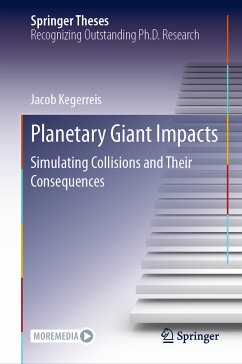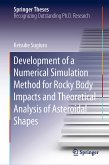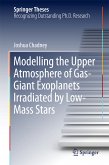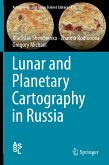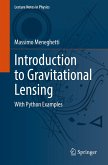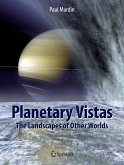The book focuses on four main topics: (1) The development of new methods to construct initial conditions as well as a hydrodynamical simulation code to evolve them, using 1000 times more simulation particles than the previous standard. (2) The numerical convergence of giant impact simulations -- standard-resolution simulations fail to converge on even bulk properties like the post-impact rotation period. (3) The collision thought to have knocked over the planet Uranus causing it to spin on its side. (4) The erosion of atmospheres by giant impacts onto terrestrial planets, and the first full 3D simulations ofcollisions in this regime.
Dieser Download kann aus rechtlichen Gründen nur mit Rechnungsadresse in A, B, BG, CY, CZ, D, DK, EW, E, FIN, F, GR, HR, H, IRL, I, LT, L, LR, M, NL, PL, P, R, S, SLO, SK ausgeliefert werden.

